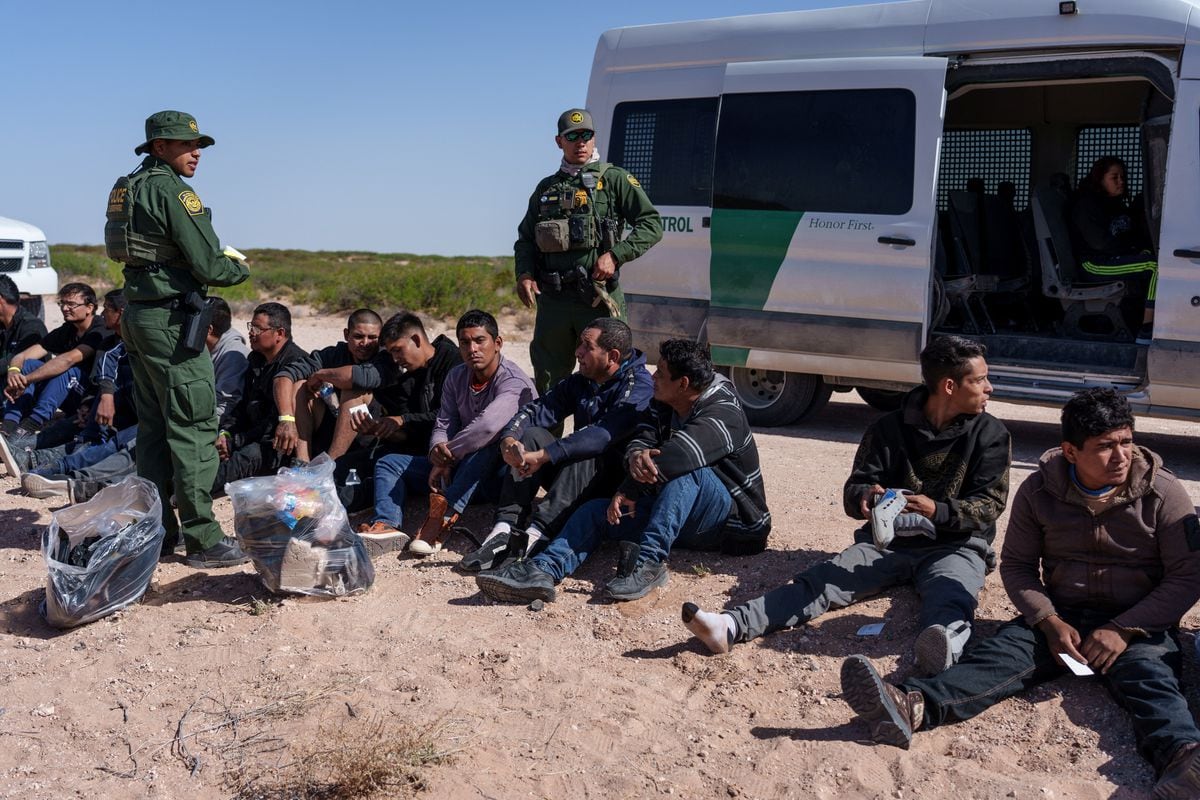The Government of Joe Biden gives a new twist to its immigration policy with the principle that inspires it: more legal routes of arrival and more difficulties for irregular immigration.
This time he does it with the pressure that on May 11 the health emergency due to the pandemic legally expires in the United States and, with it, the so-called title 42, which allows rapid returns of immigrants.
The United States fears an increase in the migratory flow on the border with Mexico and this Thursday has announced, on the one hand, more control measures and, on the other, the extension of legal migration routes to Central American countries (Guatemala, El Salvador and Honduras ) and South America (Colombia).
Among the novelties, Washington has agreed with other countries to create immigrant centers in the region where they can process their applications and be evaluated.
“The end of title 42 does not mean that the border is open,” senior administration officials have repeatedly warned this Thursday.
The norm, used for the first time in 1929 to contain Asian immigration, was rescued by President Donald Trump in March 2020 for health reasons, at the beginning of the pandemic.
The new measures have been promoted and are presented this Thursday by the Secretary of State, Antony Blinken, and the Secretary of Internal Security, Alejandro Mayorkas.
The Republican opposition, led by Donald Trump, accuses Mayorkas of being responsible for an "invasion" on the border with Mexico and immigration has become one of the axes of political debate in the United States.
Immigrants are needed to fill the vacant jobs, but the Republicans have put together a discourse in which they try to identify them with crime.
Title 42 has facilitated the return of those who cross the border without permission and are intercepted, although it has not stopped the arrival of immigrants.
Nor will it stop the expulsions: "People who enter the country and do not establish a legal basis to remain will continue to be duly expelled," said a senior official.
The Biden government has been adopting different agreements to facilitate legal migratory channels and, at the same time, close the door to immigrants without papers.
An initial agreement to process applications from Venezuelans was extended and later extended to the citizens of Cuba, Haiti and Nicaragua thanks to an agreement with Mexico announced at the beginning of the year.
The agreement implied the rapid return of those who did not meet the requirements and Washington assures that it has drastically curbed the arrival of immigrants from those countries.
The model allows people residing in the United States to apply on behalf of a citizen to enter the country if they demonstrate that they have the necessary means of livelihood or local support to survive, which facilitates family reunification, for example.
The application had to be processed before traveling through an application of the Office of Customs and Border Control (CBP, for its acronym in English).
Spain and Canada
This Thursday, Washington announced that the program will also apply to citizens of Colombia, Guatemala, El Salvador and Honduras.
In addition, the measures are extended even if title 42 expires to nationals of Venezuela, Cuba, Haiti and Nicaragua.
Officials from the Biden government have recalled that the United States has also reached agreements for Canada and Spain to accept some immigrant quotas and that the new measures will make it easier for this process to continue.
“A border-only approach cannot work.
We have to work hand in hand with our regional partners and that is what we are doing within the framework of the Los Angeles declaration”, signed at the Summit of the Americas in June last year, a senior government official has insisted.
“As we have already said, we are going to establish regional processing centers in key countries in the region to facilitate many more legal avenues than before.
We are cooperating in initiatives to fight contraband with countries like Panama and Colombia.
It is a regional effort”, he added.
"Today we are going to establish regional processing centers in Colombia and Guatemala, but we are in talks with other countries in the region," said a senior official.
At the moment there will be already existing offices and the objective is that later there will be specific centers dedicated only to this task.
They will examine whether people who want to emigrate to the United States meet the requirements of asylum, employment, family reunification or other types of programs and what alternatives are available to them.
Information will also be provided on the possibilities of emigrating to Canada or Spain, government officials have explained, which have ensured that there will be more details about its operation in the coming weeks.
“We see this as a regional approach where we would make it easier for immigrants who want to come to the United States or go to other countries like Spain and Canada to stay where they are.
Make an appointment and access a center.
This is a historic step that we are very excited to be able to announce”, said the senior official.
Follow all the international information on
and
, or in
our weekly newsletter
.

